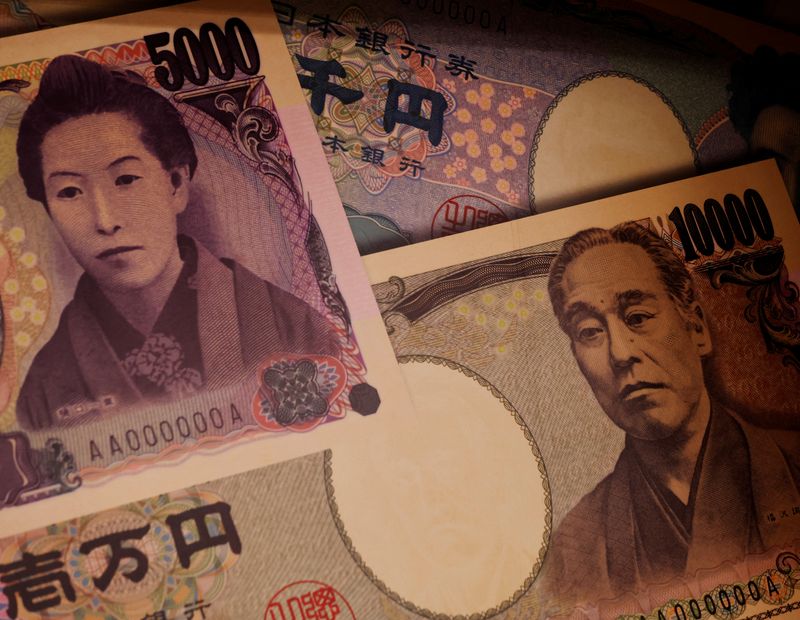Leika Kihara and Yoshifumi Takemoto
TOKYO (Reuters) – Japanese authorities will likely not intervene in the currency market unless the yen falls below 155 to the dollar, former top currency diplomat Hiroshi Watanabe said on Thursday.
Markets are concerned about the possibility of Japanese authorities intervening to buy the yen as the currency falls near the 152 level where they last entered the market in 2022.
But Watanabe, who oversaw Japan’s monetary policy from 2004 to 2007, said the likelihood of intervention was low for now because the yen’s decline had been wide-ranging, unlike in 2022 when the currency fell more sharply.
While markets may be focused on whether the dollar will rise above 152 yen, Japanese authorities likely won’t see a break above that level as a strong enough reason to intervene, he told Reuters in an interview.
“I don’t think at the current level the authorities will intervene. They probably won’t intervene unless the yen suddenly falls below 155 to the dollar,” said Watanabe, who as deputy finance minister for international affairs oversaw Japan’s currency policy. from 2004 to 2007.
The 155 line would be a psychologically important level, and a break above it would attract a lot of media attention, thereby increasing the likelihood of intervention, especially if the yen’s decline was significant, Watanabe said.
“For now, the dollar-yen rate is likely to fluctuate between 145 and 155,” in part because the interest rate gap between the United States and Japan will remain wide, he said.
The yen is in a downtrend despite the Bank of Japan’s decision last month to end eight years of negative interest rates, as traders interpreted its dovish remarks as a signal that the next rate hike would be some time away.
The dollar traded at 151.70 yen on Thursday, in a tight range after last week’s surge to a 34-year high of 151.975 yen, prompting warnings from Japanese authorities of possible intervention.
With the Bank of Japan likely to refrain from aggressive rate hikes, Japan’s borrowing costs will remain low and keep the yen under downward pressure, Watanabe said.

There were other reasons that could have prevented the yen from recovering sharply, including the fact that many Japanese firms no longer repatriate profits they earn abroad but instead spend them on investments abroad, he said.
“Even if Japan’s economy improves, it will not necessarily lead to a strong yen,” Watanabe added.


